Location/Region: Mayagüez, PR
Industry: Cleaning Services
Apps implemented: Maintenance, Recruitment, Employees, Project, Field Service, Fleet, Documents, Expenses, Accounting, Studio
Software
Replaced: QuickBooks
Size of the company: 532 employees
Hosting type: Odoo Online
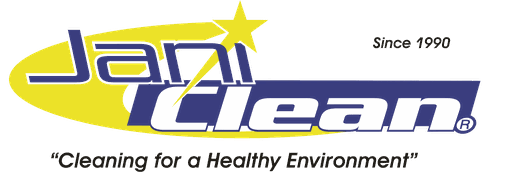
When a company with extensive operations needs efficiency, choosing the right software can mean the difference between operational chaos and excellence. At Jani Clean, a leading provider of cleaning services in Puerto Rico, Odoo became the ideal ally to centralize processes and optimize management at all levels.
Jani Clean began modestly, with its founder, Fernando Arroyo, his wife, and a single employee, who still works at the company more than 30 years later. What started with cleaning banks has evolved into a company with more than 530 employees and over 200 clients of various sizes.
Based in Mayagüez, Puerto Rico, Jani Clean not only offers cleaning services for hospitals, banks, and offices, but also has divisions dedicated to landscaping, commercial painting, and the sale of industrial cleaning products. From floor polishers to specialized disinfection chemicals, the company meets all the sector’s needs, with standards certified under ISO 9001:2015.
"Implementing technology in the cleaning industry is uncommon, but essential. Many people don’t realize how complex it is, from handling chemicals to the logistics of frequencies and tasks."

Before Odoo: Too Many Loose Pieces
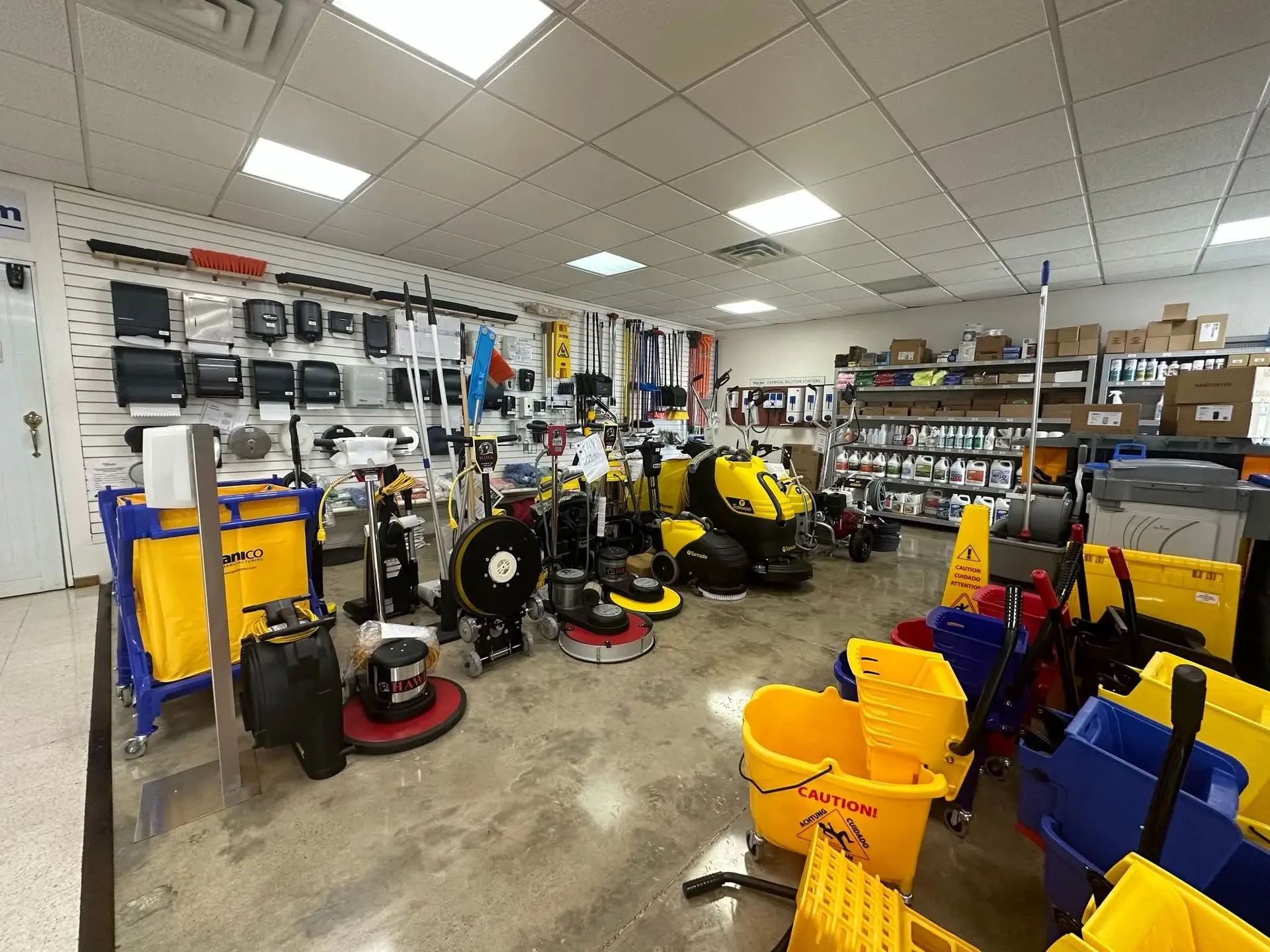
Before adopting Odoo, Jani Clean faced a challenge common among many companies with large operations: scattered solutions. They used different systems for each need, one for billing, another for fleet management, another for quality control. This fragmentation of tools made administration inefficient and hard to scale.
.
Evaluating multiple software options and specialized solutions was no easy task. As systems administrator, Carrasquillo knew the decision would have a profound impact on implementation time, cost, user adoption, and long-term sustainability.
"You really have to think carefully: Is this software only going to last me a year? Is it worth the effort to implement it? Because my neck is on the line."

It was during this search that Odoo appeared. What caught Javier’s attention most was its “modular platform” concept, where out-of-the-box applications could be easily adapted to the company’s needs.
That adaptability was essential. In Javier’s words, “there is a before and after” when it comes to using Odoo in their operation. They integrated the modules for Maintenance, Recruitment, Employees, Project, Field Service, Fleet, Documents, Expenses, Accounting, and several more, all according to their specific needs.
"The ability to customize with code and adapt it to what you truly need, without having to use a thousand systems at once, changes everything.”

Total Efficiency with Odoo
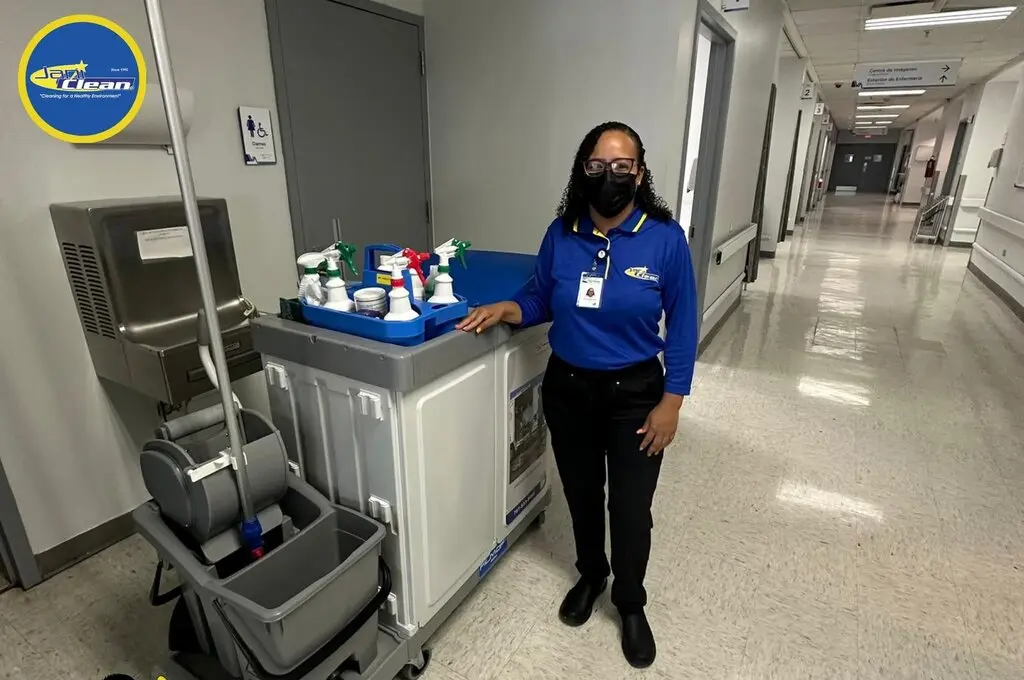
With more than 500 employees, the company needed to centralize information for each person. Now, thanks to the platform, everything related to an employee, from documents to incidents, is contained in a single profile. This has eliminated the need to search through scattered emails or files, making information access quick and orderly and improving Human Resources management.
Another major change has been in the recruitment process. Previously, it was a headache for the team, but the Recruitment module has made a huge difference. Through a QR code, candidates can access an online form, and based on their responses, they are automatically filtered and advanced through the stages of the process. Javier even designed custom stages that notify applicants each time they move forward, eliminating uncertainty. Additionally, job offers and contracts are digital, and with a Python script he developed himself, all candidate information is automatically transferred to the employee system, further simplifying hiring.
A third example is task management for clients, a major challenge when handling more than 300 clients, each with multiple needs. Here, the Field Service app has been key. Jani Clean adapted it so that processes move through defined stages, from execution to invoicing, including evidence such as before-and-after service photos. This has created a clear, efficient, error-free logistics system, allowing rigorous control and better client service quality.
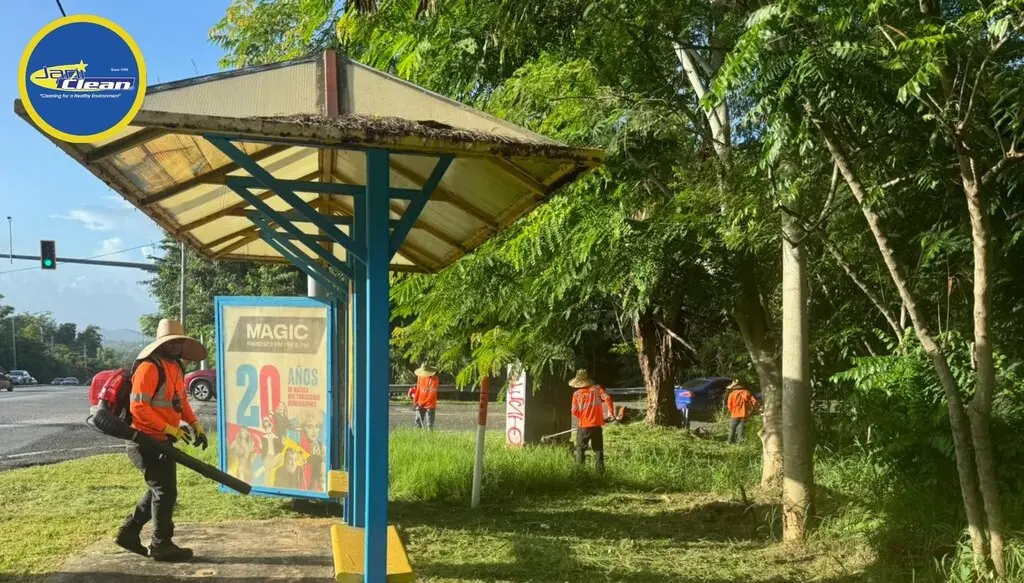
On another front, one of their first successful integrations was with the Kiosk Mode functionality in Odoo Attendances, which Jani Clean adapted to record staff clock-ins and clock-outs. This integration sends the data directly to the payroll department’s database, improving accuracy and process efficiency.
Odoo has also been key in connecting departments that previously worked in silos. Thanks to Odoo Studio, Javier has been able to customize fields and adapt workflows to the business’s specific needs, without requiring complex external developments.
Beyond integration and flexibility, there are specific Odoo features that Javier highlights. For instance, the advanced search with filters, groupings, and favorites allows the creation of personalized views that can be shared across the team. “That feature of being able to share favorite views with all users is a hit,” he says. Also, the chatter and log notes have been extremely useful, especially for field staff and for Human Resources and recruitment teams, since they centralize information in a single space. “That’s a success. Everything organized in one place. It’s a must.”
The implementation of Odoo has resulted in a notable improvement in the company’s efficiency. “Before, we had huge folders full of papers to handle all the documentation. It was awful,” he recalls. The operations and logistics area used to spend three to four days manually tabulating supervisors’ reports. “Now, I simply filter in the system, search by supervisor name, and automatically get the records in a graph. It pays for itself.”
A concrete example of this impact is the digital form Javier created in Odoo called “Record of Tasks or Visits.” There, in real time, each supervisor documents what they did, for which client, what time they arrived and left, and what tasks they completed. Today, they have more than 10,000 organized records, accessible with just a few clicks.
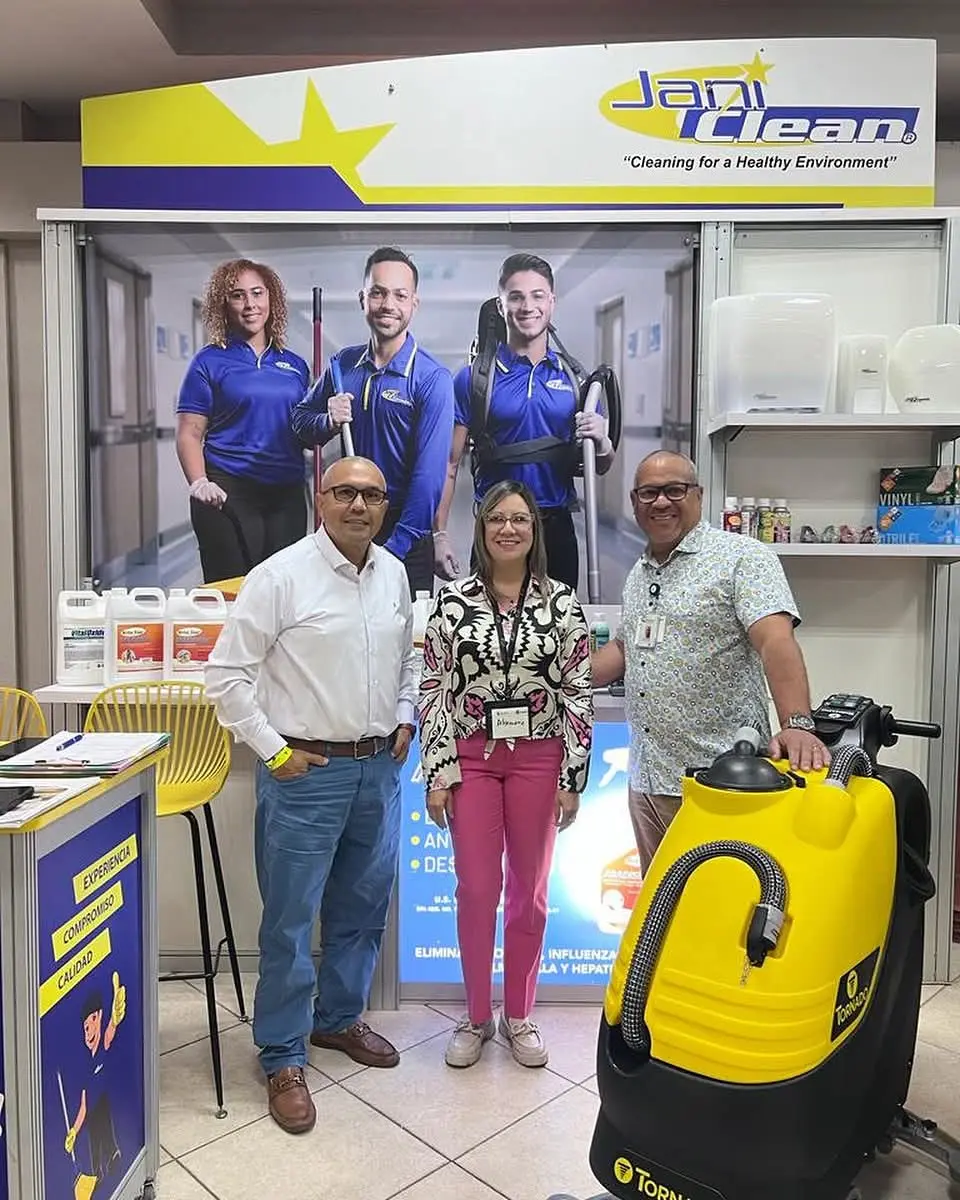
"That single change saved us days of work and allowed the teams to focus on tasks that truly add value to the business.”
What’s next for Jani Clean?

Jani Clean is preparing for a stage of strategic growth. The company has just been awarded a large-scale contract for the maintenance of green areas, covering nearly 90 miles in Puerto Rico. This project represents a significant shift, as Jani Clean’s main strength has traditionally been in hospital and office cleaning, and this new operation opens doors for expanding its expertise and services to other municipalities in a field that requires specialized equipment and robust logistics.
On the technological side, the company is moving forward with the replacement of QuickBooks by Odoo, a complex but crucial task to continue strengthening its operations. This process aims to automate and simplify tasks, reduce unnecessary steps, and allow the team to focus on more strategic solutions. The goal is to have a more agile, online system adapted to real, day-to-day needs, enabling Jani Clean to keep fine-tuning its operations, eliminate redundancies, and offer better service.
The path Jani Clean is following can serve as an inspiration for many other companies, regardless of their industry. Integrating technology, simplifying processes, and seeking new business opportunities are key to evolving. Choosing solutions that free up time, reduce friction, and encourage big-picture thinking is the first step to transforming any operation.

